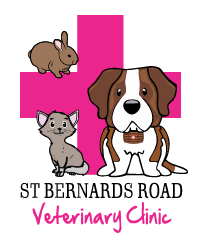The most common questions we get asked!
Anaesthesia
The risk of a general anaesthetic is very low, but to minimise the risk even further we routinely recommend pre-anaesthetic blood testing. Although these measures cannot guarantee the absence of complications they do reduce your pet’s risk during and after anaesthesia.
Pre-anaesthetic Blood Testing
This can help diagnose diseases that may not be detected with physical examination alone. This test is done before any sedation is given. In dogs and cats we perform a pre-anaesthetic biochemistry panel. This test can detect early kidney failure, liver disease and diabetes. If the blood test is normal we will proceed with the anaesthetic as planned. However, if an abnormality is detected we will contact you to discuss our concerns and treatment options.
Please note that should you elect to have pre-anaesthetic blood testing done on your pet, the price may not be included in your original estimate. When we admit your pet we will confirm if you would like to go ahead with pre-anaesthetic blood testing.
Intra-operative Intravenous Fluids
Fluid therapy is routinely used in every procedure where a general anaesthetic is required. This assists in maintaining your pet’s blood pressure during the surgery and help improve recovery from the general anaesthetic. Intravenous fluids also reduces the risk of surgical and post-op complications, especially in senior animals.
If you are planning on breeding your dog or cat we recommend a full physical examination before mating so that we can ensure that they are in excellent health. If your pet accidentally becomes pregnant then a physical examination as soon as possible is recommended.
The average length of pregnancy for dogs and cats is 60 to 63 days (9 weeks). During this time they will gradually gain weight and have some mammary development. Towards the end of the pregnancy they will start to leak some milk from the teats. Pregnancy can be diagnosed with a blood test from 3 weeks and an abdominal ultrasound from 4 weeks.
During the pregnancy it is essential that your pet receives adequate nutrition. We recommend feeding puppy or kitten food from the moment you know your pet is pregnant. We will discuss any further nutritional requirements your pet and her puppies or kittens may require on an individual basis.
When your pet is due to have the puppies or kittens it is important to provide a safe, quiet space to whelp/queen. This space needs to be away from any other pets and children. This space should have a bed with raised edges so the puppies or kittens can’t wander away and get cold. Food and water should be slightly away from the bed so the puppies or kittens can’t accidentally drown.
When your pet goes into labour try to keep her in the area provided. Observe, when possible, from a distance so that she doesn’t become distressed. Call your vet if you have any concerns, in particular watch out for the following:
- Your pet strains for 20 minutes without passing a puppy/kitten.
- Your pet seems unsettled and no puppies/kittens have been passed for more than 2 hours.
- Several puppies/kittens have been born, the last more than 2 hours ago, and a large litter is expected. You may suspect not all the puppies/kittens have been born.
- Your pet seems distressed.
- There is an unusual discharge from the vulva and no signs of labour.
We recommend a post-whelp check within 24 hours of whelping/queening, even if everything went smoothly. At this check we can examine all the puppies and kittens as well as the mother.
If you have any concerns please call our number at any time.
Intestinal Worms
How often should I worm my pet?
We recommend worming puppies and kittens for intestinal worms every 2 weeks until 3 months of age and then once a month until 6 months old then every 3 months for life.Dogs should also be wormed for heartworm once a month from 6 weeks of age. In dogs over 9 months of age there is a once a year heartworm injection that can be given.
Dogs and cats that hunt lizards should also be treated every 3 months for spirometra tapeworm.
What worms can infect my pet?
Heartworm is a worm that is spread by mosquitoes and can cause a life threatening heart failure and lung disease in dogs. Heartworm infection does occur in cats but is very rare.
There are a number of intestinal worms that infect both dogs and cats. These include roundworm, hookworm, whipworm, the common tapeworm and spirometra tapeworm. Depending on the infection these worms can cause vomiting, diarrhoea and weight loss. Hookworm infection can cause a severe life threatening anaemia, especially in young puppies.
Can I catch worms from my pet?
Some intestinal worms, such as roundworm and hookworm, can infect people so we strongly recommend regularly worming your pet. In addition, regularly cleaning up the yard or kitty litter, washing your hands after handling your pet and avoiding any kisses from them will help to prevent you becoming infected with any of their worms. It also very important to educate your children about hygiene with pets.


Home | Our Team | Caring for your Pets | Pet Products |
| FAQ | Our Patients | Latest News | Our Services
Site design | That's Graphic


